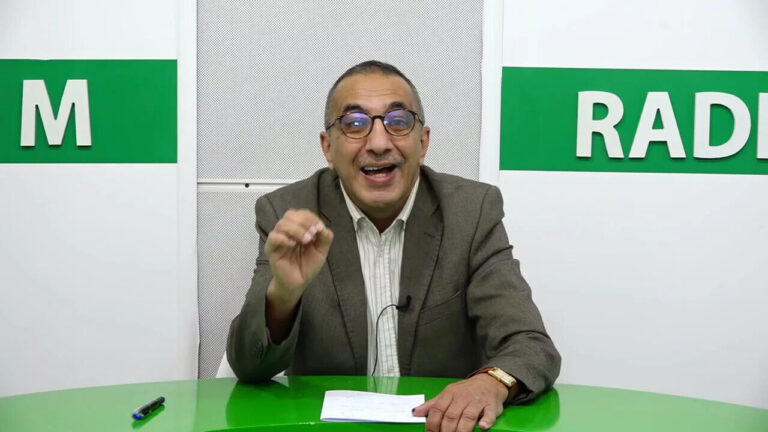An Algerian court of appeal on Sunday increased to seven years the prison term issued to a prominent media boss, but suspended two years, a watchdog said.
Issued on:
Ihsane El Kadi, 63, whose release had been sought by the European Union and international media, is one of the last independent media leaders in the North African nation. He is director of the Maghreb Emergent news website and Radio M.
He “was condemned to seven years in prison, including five behind bars with two suspended by the Alger Court of Appeal,” North Africa representative for Paris-based Reporters Without Borders (RSF), Khaled Drareni, said on Twitter.
“A totally incomprehensible verdict,” he added.
Open letter calling for journalist’s release
Ten noted thinkers, writers and filmmakers, including Nobel literature laureate Annie Ernaux, thinker Noam Chomsky, historian Achille Mbembe, writer Arundhati Roy, and director Ken Loach signed an open letter, calling on the president of Algeria to free journalist Ihsane El Kadi. pic.twitter.com/I5mFoiWJic
— RADIO M (@radioM_me) June 1, 2023
In April, El Kadi had been sentenced to five years for “foreign financing of his business”, in a case denounced by rights groups, but he was effectively serving three years because two were suspended.
Seven years is the maximum penalty under an article in Algeria’s penal code which criminalises anyone who receives “funds, a grant or otherwise… to carry out acts capable of undermining state security”.
El Kadi has been in custody since December 29.
Algeria ranks 136th out of 180 countries and territories on RSF’s 2023 World Press Freedom Index.
‘Trumped-up’
The court has ordered the dissolution of the company Interface Medias, which is behind El Kadi’s two outlets, and the confiscation of its assets. The company was also fined 10 million dinars (about $73,500), while El Kadi himself received a 700,000-dinar fine.
At the time of the April verdict his lawyer, Abdelghani Badi, told AFP that he would appeal, though the defence team boycotted that session over the “absence of just trial conditions”.
In January, Amnesty International said the accusations against El Kadi were “trumped-up state security related offences”.
“El Kadi’s unjustified detention by the Algerian authorities… is yet another example of their ruthless campaign to silence voices of dissent through arbitrary detention and the closure of media outlets,” said Amnesty’s Amna Guellali.
Earlier that month, 16 international media figures including Russian journalist Dmitri Muratov, winner of the Nobel Peace Prize, called for his release and urged Algeria to lift “unacceptable” restrictions on his media outlets.
In response to a European Parliament resolution last month calling for El Kadi’s “immediate and unconditional release”, Algeria’s legislature denounced “flagrant interference in the affairs of a sovereign country.”
El Kadi had been sentenced in June last year to six months in prison but remained free at the time as a warrant was not issued for his arrest.
Less than two weeks after his April sentencing Algeria’s parliament passed a law further restricting press freedom in the North African country by tightening media ownership rules and preventing journalists from protecting sources.
(AFP)



